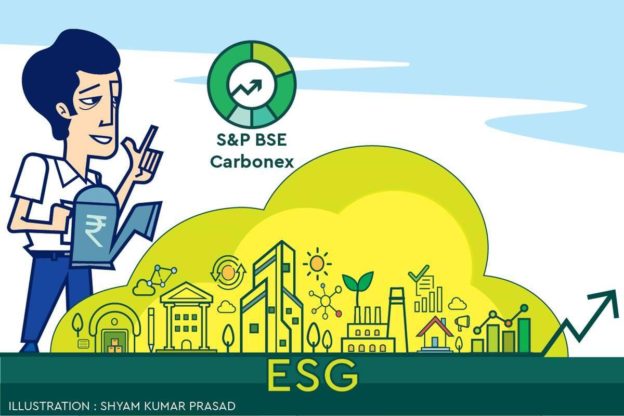Outperformance of the three sustainability indices of India over the Sensex during the Covid-19 crisis indicates the importance of sustainability index investing in India
In the last few years, socially responsible investing has gained enormous attention globally. Due to this paradigm shift in the global investment strategy, investors are looking for those companies that give high relevance to the environmental, social, and governance (ESG) factors in doing business.
Concept of ESG investment
The concept of ESG investments is much accepted among the global fund managers as many of them are tracking ESG indices such as the S&P 500 ESG Index, S&P Europe350 ESG Index, and others for making investment decisions. ESG investments are gaining popularity among both active and passive fund managers. Passive fund managers track an ESG index whereas active fund managers look into the ESG scores for making the fund’s trading strategies. Even though the concept of ESG investing is well-established in the global markets, it is still at a nascent stage in the Indian market.
ESG Investment in India
Although the concept of ESG investing is new among investors in India, they have started to look into the important aspects of socially responsible investing while making investment decisions. S&P BSE Carbonex; S&P BSE Greenex and S&P BSE 100 ESG are the three sustainability investing indices of BSE. It is imperative to examine how these sustainability investing indices of India support the realisation of the United Nations Sustainable Stock Exchanges Initiatives.
Performance of EGS index in India
During the period between January 2020 to September 2020 end, except S&P BSE Carbonex, the other two sustainability indices show positive average daily returns. However, since October 2020 the three sustainability indices show higher positive average daily returns. During the Covid-19 period, all these three sustainability indices show positive average daily returns.
The correlations among the three sustainability indices are high during this Covid-19 period. Between March 2020 and May 2020, high spikes are observed for all three sustainability indices daily average returns. This was approximately the period when Covid-19 lockdown measures were implemented across the globe including India. This indicates that the fear of Covid-19 spread has impacted significantly on all these three sustainability indices for a short period.
The ongoing Covid-19 crisis already has had a tumultuous impact on all the global economies and financial markets. A slight adjustment to the global economies and markets occurred only after the governments of the countries announced measures to support the national economy and enterprises affected by the Covid-19 crisis. Global economies and financial markets have reacted accordingly with several policies regionally and globally as the principal result of the pandemic.
The performance of these three sustainability indices is compared with the Sensex (See graphic). The S&P BSE 100 ESG index outperformed Sensex in all the three cases (one-, three-, and five-year annual returns). The estimates also indicate that all these three sustainability indices outperformed the Sensex during the Covid-19 crisis.
Outperformance of the three sustainability indices of India over the market (Sensex) during the ongoing Covid-19 crisis clearly indicates the importance of sustainability index investing in India. Higher level of co-movement among the three sustainability indices indicates that the investors will not get the benefit of portfolio diversification by investing comprehensively in these three S&P BSE Carbonex, S&P BSE Greenex and S&P BSE 100 ESG index. This socially responsible investing trend among the market participants in India seems to be a popular trend in the near future as India aligns itself with the global market trends.
https://www.financialexpress.com/money/socially-responsible-investing-indian-investors-are-taking-to-esg-investments/2362104/







